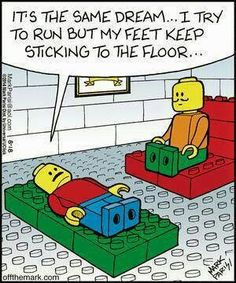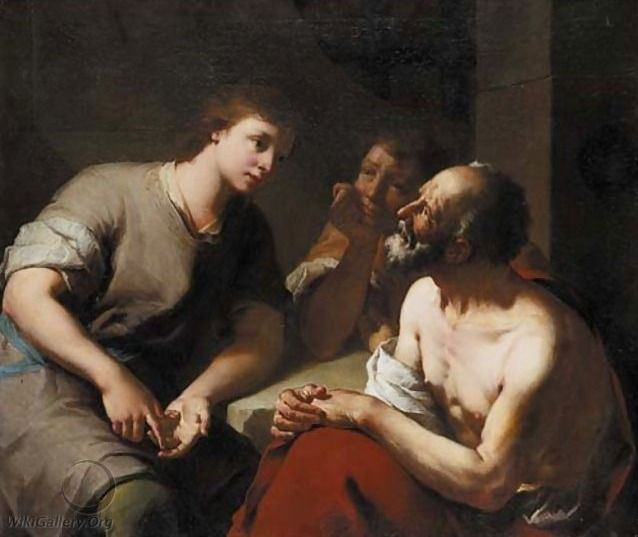Miketz: Joseph the Dream Weaver
- Samuel Lebens

- Dec 25, 2019
- 10 min read
The Talmud, in Tractate Brachot (55b-56a), contains a fascinating discussion of dreams and their meaning. Early on in the discussion, Rabbi Zeira declares:
Anyone who sleeps seven days without a dream is called a wicked person.

Why? Perhaps dreaming is central to the ethical life because a person incapable of dreaming sees only how the world is, but not how the world might be. The dreamer, with her visions of alternative possibilities, with her vivid imagination, can hope to steer the world as she sees it -- i.e., the world as it really is -- closer towards her vision for the world; i.e., the world as she dreams for it to be.
Joseph is the bible's dreamer par excellence. Last week, Joseph dreamt of bundles of wheat, belonging to his brothers, bowing down to his bundle of wheat (Genesis 37:7). Rabbi Soloveitchik recognised the extent to which this dream casts Joseph as a revolutionary visionary:
Why were the brothers binding bundles of wheat [in Joseph's dream] when they were [in actual fact] still shepherds? It's possible to say that this was the seed of the dispute between Joseph and his brothers. Joseph had foreseen the possibility of great upheaval, such that the economic situation of his brothers and father would change, and they would be forced to change their profession.

The Jews had always been shepherds. Shepherds and farmers had always hated one another (ever since the struggle between Cain, the farmer, and Able, the shepherd).
Could the culture of these Hebrew shepherds survive in a different economy? In a different country? In a different epoch? Could their identity survive as farmers, rather than as shepherds? Joseph was concerned that it might have to, and he was certain that it could. Rabbi Soloveitchik compared Joseph to the pioneering Zionists:
Against these pioneers stood the entire world of ultra-Orthodoxy, the Hassidic Rebbes, [multiple] Rabbis, and the heads of the Rabbinic academies... Like the brothers of Joseph, in his day, they believed in the stability of the existence of the regime that was in place in those days. They saw with their own eyes the great centers [of Jewish life] in Vilna, Warsaw, Kovno, Levov. Who was able to foresee the possibility that from these giant fortresses [of Jewish life] there would remain today nothing but a hazy memory?
Indeed, it is only:
Thanks to the Zionist pioneers that Torah exists today in the land of Israel, and the academies that were destroyed in Europe came back to life in the State of Israel.
A people could not survive without visionaries. It was the dreams of Joseph that created the possibility of Jewish survival in the new socio-economic reality of the exile in Egypt -- despite the opposition of his brothers; just as the dreams of the Zionists created the possibility of Jewish survival and recovery in the State of Israel -- despite the opposition of the Rabbis. A people cannot survive without dreamers. And it was Joseph, the dreamer, who allowed us to transition from shepherding to farming; who rose to power in Egypt and ensured that we would survive the famine.

But the Talmud's discussion moves on from the importance of dreams, to the importance of their interpretation.
The Talmud assumes that a dream only means what it's interpreted to mean. According to the Talmud, there is no fact of the matter as to what a dream really means, until you provide that dream with an interpretation, and from then onward, it means what it was interpreted to mean.
If this is true, then the obvious conclusion to draw is that we should always try to give our dreams a positive interpretation, since the dream will only mean what it was interpreted to mean. Indeed:
Rabbi Yochanan said: One who sees a dream, whose soul is distraught [by it], should go and have [the dream] interpreted before three people.
Initially, the Talmud is perplexed by this suggestion. If the dream was so distressing, why not leave it uninterpreted, and unpublicised? The Talmud then explains what Rabbi Yochanan meant. He shouldn't merely have it interpreted, he should have it "bettered":
He should better it before three. He should bring three people and say to them: I saw a good dream. And they should say to him: It is good, and let it be good, may God make it good. May they decree upon you from heaven seven times that it will be good, and it will be good.

In other words, Rabbi Yochanan envisages a ceremony in which a seemingly bad dream is presented, but is interpreted as being for the good. Imagine: "Oh, you saw yourself being eaten by a lion? Well, surely that means that your aims and objectives will be adopted by the strong and powerful, who can transform them into a roaring reality. What a good dream! What a good dream! Let it be so."
Is this just a therapeutic ceremony, to help a person in distress -- or is it something more? It seems that the Rabbis really did believe that a dream is a portent for the future, and that it only has any meaning once it has received an interpretation. Indeed, the Talmud reports a story, in the name of Rabbi Bena'a:
There were twenty-four interpreters of dreams in Jerusalem. One time, I dreamed a dream and went to each of them to interpret it. What one interpreted for me, the other did not interpret for me, and, nevertheless, all of the interpretations were realized in me, to fulfill that which is stated: All dreams follow the mouth of the interpreter.
Where do the Rabbis get this idea, that dreams will mean what they're interpreted to mean? Rabbi Elazar, in the continuation of this Talmudic discussion, learns it from this week's parsha. Pharoah wants his dreams interpreted. The butler tells Pharaoh that he knows a man who can interpret dreams. Indeed, he tells him that Joseph had interpreted his own dream. "And it came to pass, [just] as he interpreted for us, so it was" (Genesis 41:13). As Rabbi Elazar understands the verse: the dream came to pass just as it did because it was interpreted just as it was.
But now I have a whole host of questions:
Isn't it obvious that reality doesn't always follow our dreams?
Isn't it even more obvious that the interpretation that we give to our dreams will not alter the course of history?
If reality really does follow our dreams, but only as they have been interpreted, then shouldn't we hold Joseph responsible for the death of the baker, last week? Joseph read the baker's dream as a warning of the baker's execution. Shouldn't he have given it a positive spin, and thereby averted his death?
The Malbim (Rabbi Meir Leibush Wisser) proposes an answer to question 3 that only makes everything much worse.

A well known Midrash suggests that the original crime of the baker was that he gave a loaf of bread to Pharaoh, and it had pebbles in it. The crime of the butler was that he presented a cup of wine to Pharaoh, and it had a fly in it.
The traditional interpretation of this Midrash, adopted by Rabbeinu Bachya (for instance), indicates that the sin of the baker was worse. When you sieve the flower, and kneed the dough, you really should make sure to exclude any pebbles from the bread-mixture. But, if an insect flies into a cup of wine, it's really nobody's fault.
The Malbim, however, subverts this traditional reading of the Midrash. He notes that the story isn't really about a simple butler and a simple baker. Rather, the Torah describes them as ministers: something like, the "minister for wine" and the "minister for bread". The Malbim writes:

The minister for bread did nothing wrong [himself], since [as a minister] he didn't bake the bread himself, but only [baked it] via [one of] the baker[s in his ministry]. How was he to know that pebbles were lurking in the bread? Accordingly, he personally committed no sin, but was merely implicated because of his responsibility for the baker[s] over whom he ruled, [including] the sinful and guilty [baker who produced the bread with the pebbles]. But the minister for drinks sinned himself, for was he not able to see the wine in the cup [as he passed it to Pharaoh], to ensure that it was free of flies? Why didn't he check the cup first?
And thus, according to the Malbim, in the cold light of the law, the minister for bread should have had a better chance of exoneration than the minister for wine. He continues:
Had Joseph interpreted the dream in accordance with what was fitting for these two ministers, according to justice and law, [i.e., had he said] that the minister for wine would hang, and the minister for bread would go free, Joseph wouldn't have risen to greatness, for they would have thought that he interpreted their dream only in light of the fact that they would probably be judged as was fitting their crimes, and that the minister for drink was [guilty of a] more serious sin than the minister for bread. But, since Joseph reversed what was to be expected by reason alone, and his [unlikely] prediction came true, from this they saw that he was a man within whom there was the spirit of God.
This is a fabulous and daring interpretation of the events. But I cannot accept it. It implies that Joseph really could have given the dreams a different interpretation. Perhaps he could have saved them both, by interpreting their dreams differently. Instead, he gave an interpretation of the dreams that ended up causing the more guilty minister to go free, and the more innocent minister to lose his life, merely in order prove the power that he had as a reader of dreams.

All three of our questions are intensified by the Malbim's words. None of them are answered. Dreams really are given a tremendous super-natural power, and so are their interpretations, and Joseph ends up looking like a callous opportunist.
Let me offer a different reading. Dreams don't have any super-natural power to change reality. If anything, they are merely a reflection of our own thoughts and preoccupations.
Indeed, the Rabbis in our original Talmudic discussion were aware of this. They tell the following story:
The Roman emperor said to Rabbi Yehoshua, son of Rabbi Chananya: You say that you are extremely wise. [Prove it.] Tell me what I will see in my dream [tonight]. [Rabbi Yehoshua] said to him: You will see the Persians capture you, and enslave you, and force you to herd unclean animals with a golden staff. He thought the entire day [about the images described to him by Rabbi Yehoshua] and that night he saw [it in his dream].
If you give a person a striking image that captures their imagination, and haunts them during the day, they're likely to dream about it too. Dreams are not magical. They are psychological.
But reality and dreams have something deep in common. You can't change the basic contours of reality, but - to a large extent - it is up to you what to make of reality. It is up to you what reality means. And the same is true of our dreams. In our Talmudic discussion, Rava tells us that dream interpretation has to be rooted in the actual imagery of the dream. If you dreamt about a lion, you can't delete the lion from the dream. The lion was there. But without ignoring the brute facts of the dream, it is up to you what to make of it. It is up to you what it means.
Moreover, just as our dreams can be shaped by our waking-reality -- such that if we're constantly thinking about "Persian capture" while we're awake, we'll dream of it too -- our waking reality can also be shaped by our dreams. Joseph doesn't simply dream that his brothers will have to rely upon wheat, and that they'll come to him and bow down. To a large extent, he was responsible for implementing his dreams; for making sure that they would come to fruition. His dreams provided a template by which he could manipulate reality. Much of the action of this week's reading is simply Joseph doing what he has to do to make his dream a reality.

So far, nothing supernatural. We can even explain the extent to which our interpretations shape our dreams. A number of psychologists and philosophers believe that we often create an emotional reality simply by labeling it. R. G. Collingwood, for example, argues that the primitive level of our emotional landscape is inherently fuzzy and undefined. There are lights and darks, pleasures and pains, but nothing as specific as "anger", "frustration", "anxiety", or "being exited about the up-coming holiday"! And yet, when we give our fuzzy emotions one of these names, then the act of giving it that name creates a new reality. Interpretation is a powerful thing. It creates new psychological realities. And still, we've said nothing supernatural.
In fact, Rabbi Bena'a's dreams don't come true outside of him. He's careful to say, instead, that the twenty-four interpretations of his single dream were realised in him. Each interpretation created a new psychological reality. Nothing more, and nothing less.
Now back to our story: Joseph knew that reality has some fixed contours that we're powerless to change. The baker was going to die, and the butler was going to be set free. The writing was on the wall. There was nothing that Joseph could do about that. With Rabbeinu Bachya, and against the Malbim, we can say that the baker had simply committed a more serious crime. But Joseph had offered the butler an interpretation, not just of his dreams, but of the significance of their meeting. Jospeh had asked the butler to remember him, and to secure his release. In other words, Joseph had given their meeting a significance, he saw their meeting as an event that created an obligation for the butler. But the butler didn't want to see things that way.
In this week's parsha, the Midrash picks up on the fact that the butler has a dismissive attitude towards Joseph. In describing him to Pharaoh, he calls him a "youth", a "slave", and a "Hebrew" (Genesis 41:12). The Midrash hears in this description, not without warrant, a certain dismissive tone. Perhaps as a racist, perhaps as a snob, perhaps in virtue of Joseph's precocious youth, the butler didn't want to come to Joseph's aid.

Joseph had given their meeting a meaning that the butler wanted to deny. But once that meaning had been given to reality, it was impossible to shake it. Sure. It took two years, as Joseph languished in jail. But eventually, the butler saw that just as Joseph had interpreted things (not merely as he had interpreted their dreams, but just as he had interpreted their reality, and the significance of their meeting), so things came to pass (cf. Genesis 41:13).
The meeting between the butler and the Hebrew slave really did have the significance that Joseph took it to have: it was the path to his release.
Based on this week's Parsha, the Izbizer Rebbe, Rabbi Mordechai Yosef Leiner, tells us that the world is like a dream. It's not our dream. But God's dream. And yet, like a dream, it stands to be interpreted. Of course, we have no control over what God dreams. But as dream interpreters, we do have a significant power to decide what it all should mean. And Joseph was a master at giving meaning to reality.
***
(These thoughts might be especially fitting for the festival of Hanukkah. As Rabbi Sacks explains here - Hanukkah is a festival whose significance has changed over the years. The story of the festival has stayed constant, but it's meaning has been been subject to multiple interpretations.)
Thanks to David Wietchner for alerting me to the existence of the Malbim's comment.



Comments